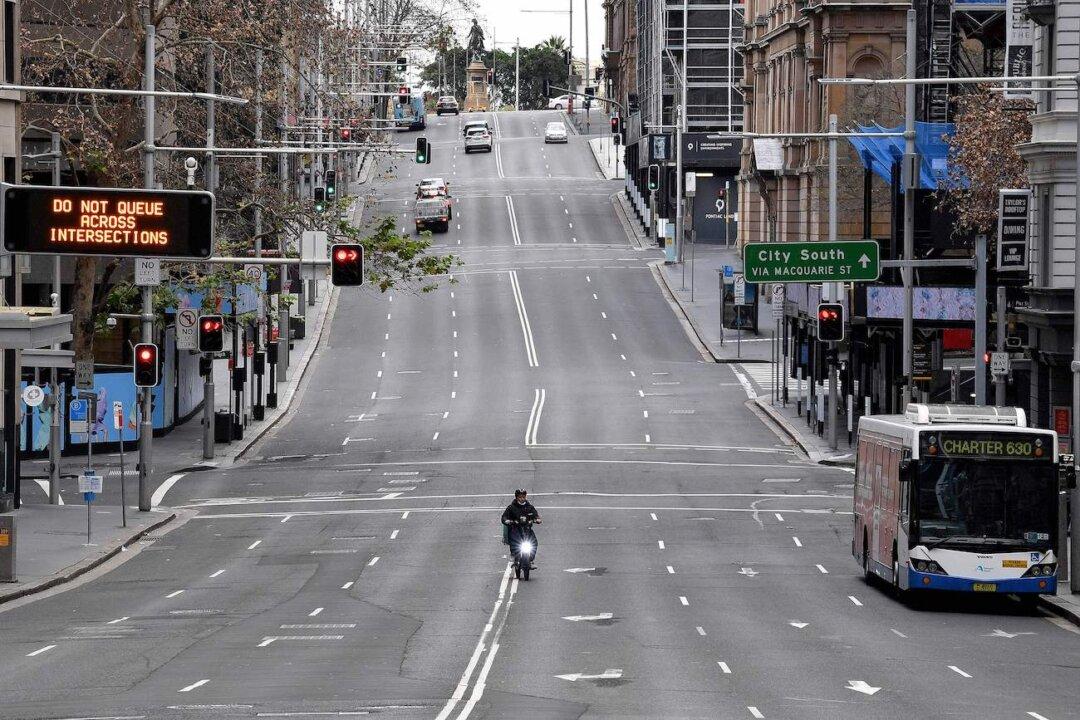The New South Wales (NSW) government has extended its CCP virus lockdown measures until July 16, dashing the hopes of the five million people currently enduring stay-at-home orders in Greater Sydney and its surrounds during the school holiday period.
The lockdown extension comes as the state recorded 27 new local COVID-19 cases for the 24 hours to 8 p.m. on Tuesday, with only 13 in isolation for the entirety of their infectious period. The state has continued to record more than a dozen new cases for several days.





